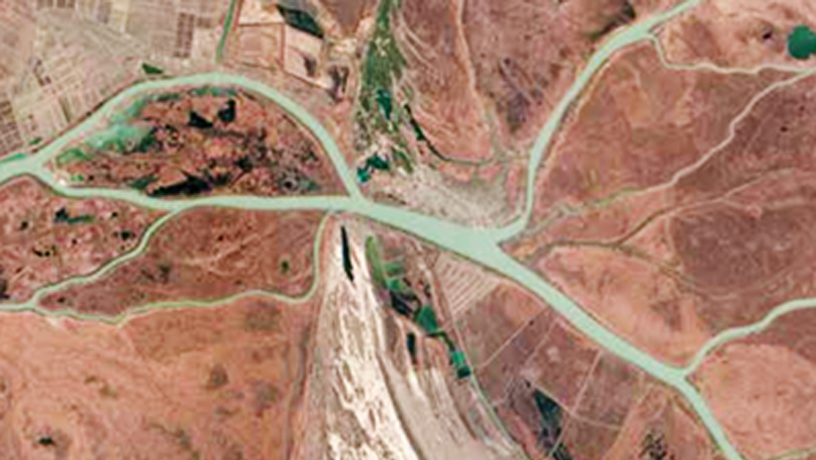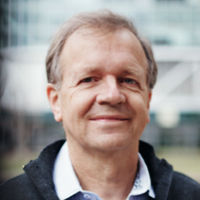Exploring a Deeper Understanding of How Humans Affect the World's Water
When it comes to issues like groundwater contamination, it’s obvious to Peter Schlosser that human actions have the potential to significantly affect environmental systems. However, he says, such impact is also evident on a much larger scale. Peter Schlosser, Maurice Ewing and J. Lamar Worzel Professor of Geophysics and chair of the Department of Earth and Environmental Engineering, studies water movement, its variability and change in the ocean, continental water bodies, and groundwater using natural and anthropogenic substances and isotopes as tracers.
Schlosser states, “In the last 150 years, the earth’s temperature has increased by nearly 1 degree Celsius (1.8 degrees Fahrenheit) due to humans’ emission of greenhouse gases, mainly burning of fossil fuels.” Understanding that the global average temperature jump from the last ice age was only 5 degrees Celsius—and that based on the earth’s temperature cycles over the past millions of years, the planet should be in a cooling period—we are about 20 percent into a dramatically fast shift to a warmer world. The implications of this temperature trend include polar ice sheet, sea ice, and mountain glacier deterioration that could flood low-lying land masses and the infrastructure in these regions as well as displace millions of people.
Because natural systems including oceans, estuaries, or rivers are very finely tuned, even small changes sparked by humans, notes Schlosser, can have profound consequences for their dynamics, temperatures, evaporation and rainfall patterns, and potential spread of contamination.

Danube River (Image courtesy of NASA)
 Peter Schlosser (Photo by Timothy Lee Photographers)
Peter Schlosser (Photo by Timothy Lee Photographers)
“In groundwater systems, we study how far water is moving through soil across the water table into aquifers so we can understand how pollutants are transported, as well as how long it takes for these contaminants to be flushed through the system,” explains Schlosser. “We did several of these studies, including one along the Danube River to measure the infiltration of Danube water into an aquifer used for drinking water. We’re also conducting research to better understand the arsenic contamination of groundwater in Bangladesh in order to minimize people’s exposure.”
In the United States, Schlosser and his students and colleagues have developed methods to quasi-continuously measure minute amounts of inert trace gases injected into rivers and estuaries in order to visualize the effects of a chemical spill or other release of contaminants. And, as ocean temperatures rise, he continues to measure their interaction with polar ice sheets to estimate melting rates and understand how they relate to their destabilization.
Although he originally studied physics, Schlosser became fascinated with the expansiveness of Earth’s water systems and water’s critical role in so many areas of human life—from climate to drinking and sanitation to agriculture and food preparation. His research foci intersect at a common goal to identify solutions for negative global and societal consequences arising from human-induced changes to these systems.
“We have to put our research into a context decision makers understand so they can create sensible policies that improve humanity’s outlook on local, regional, and global scales,” says Schlosser. “For the people of Bangladesh, that may mean drilling deeper wells or sharing deep wells for drinking water. On a global scale, it might be working on climate policies controlling the emission of greenhouse gases to minimize, for example, ice sheet deterioration and sea level rise. We still have a lot to learn about packaging the insights we gain from our research and translating them into strategies for solutions—but that’s one of the challenges that drew me to this field.”
Prior to joining Columbia in 1989, Schlosser was an assistant professor at the Institute for Environmental Physics at the University of Heidelberg. In 1993 he was a Vetlesen fellow and visiting professor at the University of Washington–Seattle. He is an elected fellow of the American Geophysical Union, the American Association for the Advancement of Science, and the Explorers Club.
